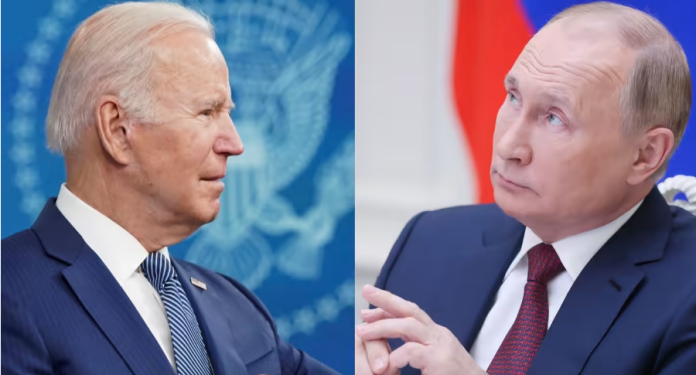The Kremlin will continue to abide by the only nuclear arsenal treaty between the United States and Russia even after Russian President Vladimir Putin suspended its participation in the deal.
Russia will stick to agreed limits on nuclear missiles and keep informing the United States about changes in its deployments, a senior defense official said on Wednesday, despite the suspension of its last remaining arms control treaty with Washington.
According to Reuters, both chambers of Russia’s parliament voted quickly in favor of suspending Moscow’s participation in the New START treaty, rubber-stamping a decision that President Vladimir Putin announced on Tuesday when he accused the West of trying to inflict a “strategic defeat” on Russia in Ukraine.
But a top defense ministry official, Major-General Yevgeny Ilyin, told the lower house, or Duma, that Russia would continue to observe agreed restrictions on nuclear delivery systems – meaning missiles and strategic bomber planes.
RIA news agency quoted Ilyin as saying Moscow would also continue to provide Washington with notifications on nuclear deployments in order “to prevent false alarms, which is important for maintaining strategic stability.”
According to a report, Putin, toward the end of his much anticipated Tuesday address in front of parliament, announced that the government would be halting its participation in the New START treaty, which limits both countries’ nuclear arsenals. A day later, both chambers of Russia’s parliament voted in favor of suspending Moscow’s participation in the deal, according to Reuters.
“In order to maintain the necessary level of predictability and stability in the nuclear missile area, Russia will take a prudent approach and will continue to strictly comply with the quantitative restrictions stipulated in the treaty for strategic offensive armaments within the life cycle of the treaty,” the Russian Foreign Ministry said in a lengthy statement after Putin’s announcement.
The ministry also noted that it could change its mind and reenter the treaty “if Washington demonstrates the political will and takes honest efforts towards general deescalation and the creation of conditions for resuming the comprehensive operation of the treaty and, consequently, its survival.”
U.S. President Joe Biden said on Wednesday that Putin made a “big mistake” in deciding to pause their participation in the treaty, while Secretary of State Antony Blinken called Putin’s announcement “deeply unfortunate and irresponsible” a day earlier, adding, “We’ll be watching carefully to see what Russia actually does.”
Blinken noted that the U.S. is willing to start talks about the treaty “at any time with Russia, irrespective of anything else going on in the world.”
The treaty dates back to 2010, when then-Presidents Barack Obama and Dmitry Medvedev agreed to the deal. Biden agreed to extend it just days before its expiration in February 2021 for another five years into 2026. Each side is permitted to conduct up to 18 inspections of nuclear weapons sites annually to ensure the other is compliant with the treaty, though both sides agreed to pause that aspect of the agreement in March 2020 due to the coronavirus pandemic.
The two sides were set to meet in November in Egypt to start talks about resuming inspections, but the Russian side postponed it.
In the days before Putin’s announcement, Russia launched a test intercontinental ballistic missile, a SARMAT missile, that appeared to fail, according to CNN. Russia notified the U.S. of the test through deconfliction lines of the New START treaty obligations.













